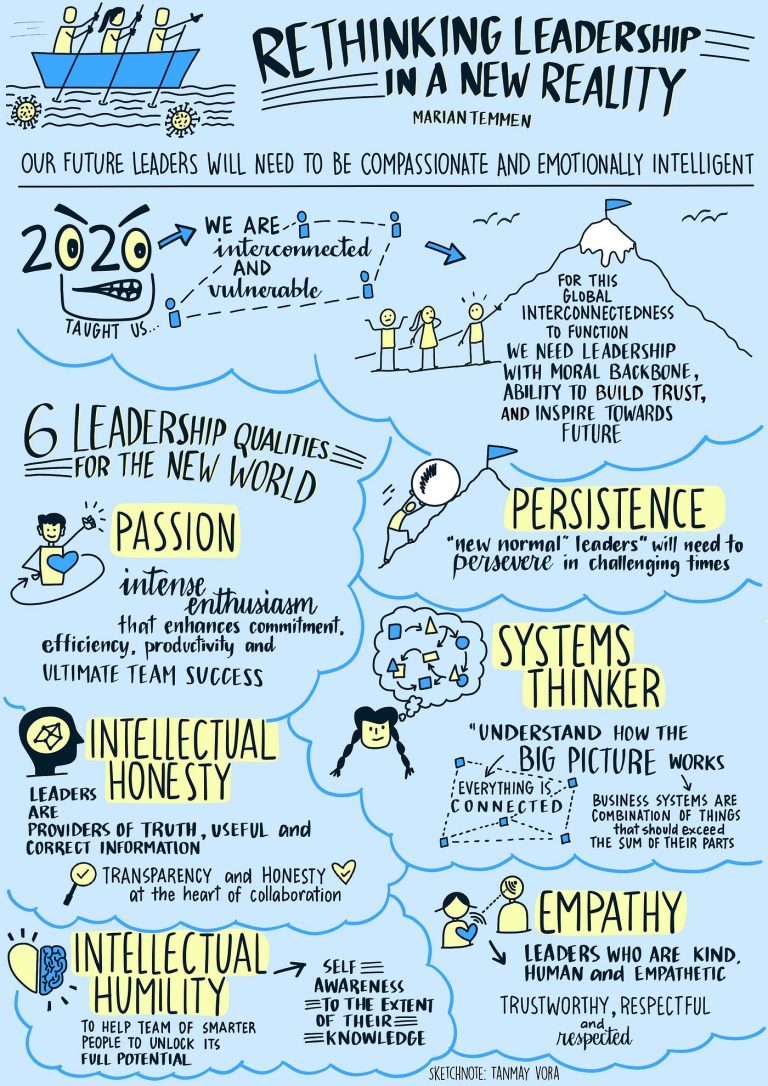Are Steve Jobs’ Leadership Skills Hyped?
Steve Jobs’ leadership skills are not hyped; they are widely recognized and praised in the business community. Despite his controversial management style, Jobs demonstrated exceptional vision, innovation, and a relentless pursuit of perfection, which contributed to Apple’s success and revolutionized multiple industries.
Steve Jobs, the co-founder and former CEO of Apple Inc. , is a name synonymous with innovation and success. His charismatic leadership style and unparalleled ability to envision and create groundbreaking products have cemented his place as one of the greatest business leaders of our time.
However, there have been debates regarding the extent to which his leadership skills are hyped. We will explore the evidence surrounding his leadership abilities, providing an objective analysis that sheds light on the impact of Jobs’ leadership style on Apple and the broader tech industry. By delving into his achievements and considering both the positive and negative aspects of his management approach, we can determine the true value of Jobs’ leadership skills and assess if they are indeed deserving of the hype.

Credit: www.youtube.com
Steve Jobs’ Leadership Style
Steve Jobs, the legendary co-founder and former CEO of Apple Inc., was known for his distinctive leadership style that continues to captivate the minds of many. Jobs’ unparalleled vision, relentless drive, and unwavering commitment to excellence have made him an icon in the business world. In this blog post, we will delve into the elements that defined Jobs’ leadership style, examining his charismatic leadership and unconventional decision-making.
Charismatic Leadership
One of the key aspects of Jobs’ leadership style was his charismatic nature. He possessed an innate ability to inspire and motivate those around him. His vision for Apple, coupled with his passionate and persuasive communication skills, made him a magnetic leader. With his iconic product launches and captivating presentations, Jobs had a way of captivating his audience and rallying his team behind him.
Jobs’ charismatic leadership enabled him to effectively communicate the company’s vision and goals, fostering a shared sense of purpose among his employees. This not only created a sense of loyalty and dedication but also drove innovation and creativity within the organization.
Unconventional Decision-making
Another defining characteristic of Jobs’ leadership style was his unconventional decision-making. He was not afraid to challenge the status quo and think outside the box. Jobs often relied on his intuition and gut instinct when making important decisions, sometimes going against conventional wisdom.
This unconventional approach to decision-making allowed Apple to disrupt industries and introduce game-changing products. Jobs’ ability to envision what consumers wanted before they even knew it themselves is a testament to his visionary leadership. Whether it was the creation of the iPhone or the introduction of the iPod, Jobs’ willingness to take risks and embrace innovation set Apple apart from its competitors.
While some argue that Jobs’ leadership style was hyped, there is no denying the impact he had on Apple and the technology industry as a whole. His charismatic leadership and unconventional decision-making propelled Apple to become one of the most valuable companies in the world.
This blog post is part of our series discussing the leadership skills of renowned business leaders.
Credit: www.youtube.com
Impact On Apple’s Success
Steve Jobs’ leadership skills played a pivotal role in Apple’s success, as his innovative vision and relentless pursuit of excellence propelled the company to new heights. His ability to inspire and motivate his team enabled Apple to create groundbreaking products that revolutionized the tech industry.
Reviving Apple’s Brand
Steve Jobs’ leadership played a pivotal role in reviving Apple’s brand and transforming the company into one of the most valuable and influential technology companies in the world. His visionary approach to leadership and ability to foresee industry trends allowed Apple to bounce back from the brink of failure and establish itself as a leader in the tech market once again.
- Focusing on user experience: Jobs understood the importance of creating products that were simple, intuitive, and aesthetically pleasing. He believed in design-driven innovation and placed a heavy emphasis on user experience. This approach resonated with consumers, establishing Apple as a brand that delivered not only cutting-edge technology but also products that were a joy to use.
- Streamlining product lines: Jobs’ decisiveness and strategic thinking were evident in his decision to streamline Apple’s product lines. Under his leadership, a simplified product portfolio was introduced, eliminating unnecessary complexity and focusing on a core set of products that were designed to meet the needs of a broad range of consumers.
- Creating a cult-like following: Jobs recognized the power of branding and successfully created a cult-like following around Apple products. Through masterful marketing campaigns and carefully orchestrated product launches, he transformed Apple into a lifestyle brand that consumers aspired to be a part of. This brand loyalty, coupled with the company’s commitment to quality and innovation, contributed to Apple’s success and continued growth.
Innovative Product Development
One of Steve Jobs’ greatest strengths as a leader was his ability to drive innovative product development at Apple. His relentless pursuit of perfection and refusal to settle for mediocrity led to the creation of revolutionary devices that reshaped entire industries.
- Focus on disruptive technologies: Jobs had an uncanny ability to identify and capitalize on emerging technologies that had the potential to disrupt existing markets. From the iPod to the iPhone and later the iPad, each product introduced by Apple under Jobs’ leadership not only outperformed competitors but also set new benchmarks for industry standards.
- Integration of hardware and software: Jobs believed in the power of integration, and this philosophy was reflected in Apple’s products. By tightly integrating hardware and software, Apple was able to deliver seamless user experiences that were far superior to those offered by its competitors.
- Iterative improvement: Jobs understood that innovation required continuous improvement and refinement. He fostered a culture of iteration at Apple, encouraging teams to constantly push the boundaries and strive for excellence. This focus on iterative improvement allowed Apple to stay ahead of the curve and consistently deliver products that were ahead of their time.
Critiques Of Jobs’ Leadership
In assessing the leadership skills of Steve Jobs, it is crucial to consider the critiques that have been put forth over the years. While Jobs is often hailed as a visionary and an innovative leader, there are valid arguments against his management style. This section will delve into two major critiques of Jobs’ leadership: his micromanagement tendencies and his perceived lack of empathy.
Micromanagement Tendencies
One significant critique of Jobs’ leadership style is his tendency to micromanage. Jobs was known for his meticulous attention to detail and his desire for absolute control over every aspect of Apple’s products. From product design to marketing campaigns, Jobs had a hand in almost every decision, no matter how small.
This micromanagement approach can have its benefits, as it ensures a high level of quality control and consistency. However, it also has its drawbacks. Micromanagement can lead to an overburdened leader who becomes a bottleneck for the entire organization. It stifles creativity and hampers the growth and development of employees, as they are not given the autonomy to make their own decisions and take ownership of their work.
Furthermore, Jobs’ micromanagement style also created a highly stressful and demanding work environment. Employees constantly felt the pressure to meet Jobs’ lofty standards and were often subjected to harsh criticism and scrutiny. This intense level of scrutiny and the fear of failure can lead to high levels of burnout and employee dissatisfaction.
Lack Of Empathy
Another critique often leveled against Jobs is his lack of empathy. Jobs was infamous for his blunt and sometimes abrasive communication style, which could often come across as insensitive and dismissive. He held high expectations for his employees and was quick to criticize and fire those who did not meet his standards.
While some argue that this tough love approach can push individuals to achieve their best, it also created an environment where employees felt undervalued and discouraged from taking risks. The lack of empathy displayed by Jobs inhibited open communication and hindered the formation of meaningful relationships within the organization.
Moreover, Jobs’ lack of empathy also extended beyond his interactions with employees. He was known for his relentless pursuit of success, often at the expense of other competing interests. This single-minded focus on Apple’s goals sometimes led to questionable business practices, such as aggressive patent litigation and supplier labor issues.
In conclusion, while Steve Jobs’ leadership skills are often hailed as revolutionary, it is essential to acknowledge the critiques that have been raised. Micromanagement tendencies and a lack of empathy are two primary criticisms often associated with Jobs’ leadership style. While it is undeniable that Jobs’ leadership had a profound impact on Apple and the tech industry as a whole, it is equally important to consider the potential drawbacks of his approach.
Legacy And Lasting Influence
Steve Jobs’ leadership skills continue to have a lasting influence in the technology industry. From his visionary approach to innovation and his ability to inspire others, it is fair to say that his legacy is not just hype.
Inspiring Future Leaders
Steve Jobs’ legacy and lasting influence extend far beyond his time as the co-founder of Apple Inc. His leadership skills have left a mark on the technology industry and continue to inspire future leaders. Jobs’ innovative thinking, relentless pursuit of perfection, and ability to motivate and inspire his teams have made him a role model for aspiring leaders across the globe. Jobs’ emphasis on innovation and creativity pushed the boundaries of what was thought possible in the tech industry. His ability to envision products that people didn’t even know they needed revolutionized the way we interact with technology today. He taught future leaders that true innovation lies in understanding the desires and needs of consumers, even before they are fully aware of them.Shaping The Tech Industry
Steve Jobs’ influence on the tech industry cannot be overstated. Through his leadership, he shaped the industry as we know it today. Apple’s products, such as the iPhone, iPod, and iPad, have not only become household names, but they have also become the gold standard for innovation and design. Job’s attention to detail, unwavering commitment to delivering high-quality products, and ability to anticipate market trends set Apple apart from its competitors. Under Jobs’ leadership, Apple created a brand that not only represented cutting-edge technology but also served as a symbol of elegance and simplicity. This focus on design aesthetics has transformed the tech industry, where previously function overshadowed form. Jobs taught future leaders that success is not just about features and specifications but also about creating products that evoke emotions and connect with users on a deeper level. Jobs’ impact on the tech industry extends beyond Apple. His vision and leadership inspired countless entrepreneurs and startups to strive for excellence. His innovative spirit and insistence on pushing boundaries have led to breakthroughs in various sectors, from software development to personal computing. Jobs’ charismatic leadership style encouraged others to think differently, take risks, and embrace change in their own endeavors. In conclusion, Steve Jobs’ leadership skills were not just hype. His legacy and lasting influence continue to shape the tech industry and inspire future leaders. His emphasis on innovation, attention to detail, and ability to create products that resonate with consumers have set him apart as a visionary and an icon. Aspiring leaders can learn valuable lessons from Jobs’ journey, propelling them towards success in their own endeavors.
Credit: www.aiqueous.com
Frequently Asked Questions Of Are Steve Jobs’ Leadership Skills Hyped?
Are Steve Jobs’ Leadership Skills Overhyped?
Steve Jobs’ leadership skills are not overhyped. He revolutionized multiple industries and created a cult following.
How Did Steve Jobs Exemplify Great Leadership?
Steve Jobs exemplified great leadership through his passion, vision, attention to detail, and ability to inspire others.
What Lasting Impact Did Steve Jobs Have On The World?
Steve Jobs had a lasting impact by revolutionizing the technology industry, creating iconic products, and establishing Apple as a global powerhouse.
Conclusion
Steve Jobs’ leadership skills have undeniably been hyped, but not without just cause. His innate ability to innovate, inspire, and think outside the box propelled Apple to unimaginable heights. While criticisms exist, including his reputed arrogance and demanding nature, it cannot overshadow the immense impact Jobs had on the technology industry.
As with any leader, it is important to acknowledge both the strengths and weaknesses, and ultimately, Jobs’ contributions cannot be overlooked.


